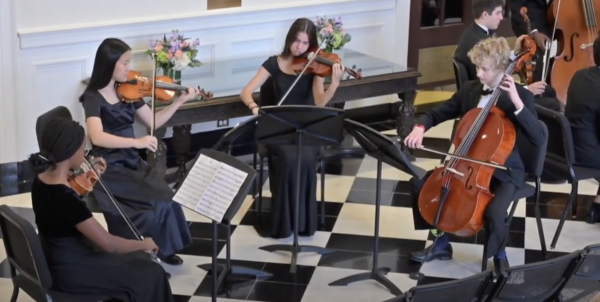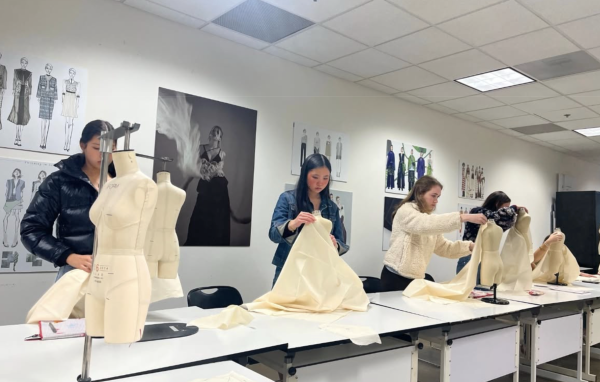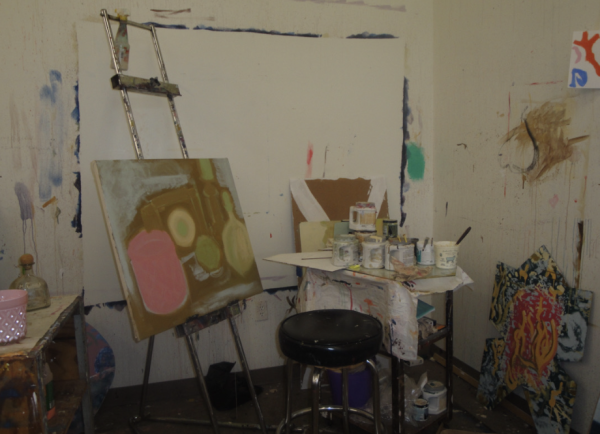Westminster participates in international poetry translation
In summer 2019, Westminster’s Mario Chard, an Upper School English teacher, had the opportunity to travel to Berlin, Germany, for an annual poetry festival called VERSschmuggel/reVERSible, hosted by the Haus für Poesie. At this event, six German poets and six American poets translated each other’s work. Chard worked with poet Ronya Othmann. The pair exchanged and translated one another’s poems with the aid of a translator. Chard found companionship with Othmann, despite the difficulty of translation.
“[Othmann] is a lovely person, and we got along really well,” said Chard. “I think that the individual that put us together tried to match us with some sense of similarity. She’s the child of an immigrant, and I’m the child of an immigrant. We write about being torn in terms of culture. We love to obsess over aspects of language, wordplay, puns, etymologies, and different meanings of words. … The problem is it is impossible to translate puns and wordplay, so I think we took a lot of joy in creatively trying to solve that problem.”
The difficulty with translation is that each language, like each culture, is different. When translating with Othmann, Chard struggled to translate as closely as possible while also embodying the poem’s concepts. The wordplay and other notable aspects of Chard and Othmann’s work, while incredible, were even more difficult to translate. Luckily, they had the assistance of a translator.
After the initial event in Germany, Westminster hosted a virtual panel with the same poets. Initially, the poets would have been hosted in person at Westminster, but due to COVID-19, the event was shifted online. As in translation, the English department’s adaptability was essential to making this event a success.
“Anything related to the pandemic, we as a people try to find ways around it,” said Chard. “What I mean by that is, having them here in person would have been better, but maybe not, because we still were able to get this point across that while translation is crucial, there are always things lost in it. Sometimes you can never fully translate, but the trying is important. Like trying to recreate this event virtually mimics translation because you are trying to do something that is never going to fully work.”
Regardless of COVID restrictions, the English department organized the event successfully, and both Westminster students and faculty enjoyed the live panel. Additionally, student writing fellows had an even more special opportunity. Othmann visited the class and spoke of translating alongside Chard before the two discussed their work.
Senior Soumia Vellanki, a writing fellow, attended this class. As a proficient Spanish speaker and a student interested in pursuing literature, the experience was particularly valuable. It reflected not only the beauty of understanding another culture and poem but the hurdles present in global literature.
“I think there are limitations, like in any sort of poetic form because even if the language is encompassing for a culture, the poet’s use of that language is subjective,” said Vellanki. “I would never recommend looking at just one piece of text.”
When seeking to understand a culture, it is essential to examine language used in literature. Hopefully, this poetry translation class will lead even more Westminster students to further their understanding of foreign culture and translation outside of a typical language class.
“The idea of translation is so vital,” said English teacher Jennifer Dracos-Tice. “How does this whole process work? … I think Mr. Chard is bringing in something that is really, really vital and global that we need to pay attention to. We’re so monolingual in this culture, and I just think it’s exciting that Mr. Chard is here and doing this work and that the students are thrilled.”
After this event’s success, further translation events are on the horizon, as translation is connected to many departments. New translation experiences hope to shed light on cultural connection and explain the importance and struggles of translation.
Students can look forward to an upcoming event. On March 15, 2021, Westminster will be hosting Valzhyna Mort. There will be a Q&A from 1:00 p.m. to 2:00 p.m., and writing fellows will attend a workshop from 3:00 p.m. to 4:30 p.m. Those who are unable to attend may enjoy viewing the recording of last year’s event.
As Westminster’s campus welcomes more classes and programs that work with translation, windows into different cultures open up, creating a culture of inclusivity and understanding previously unattainable.



